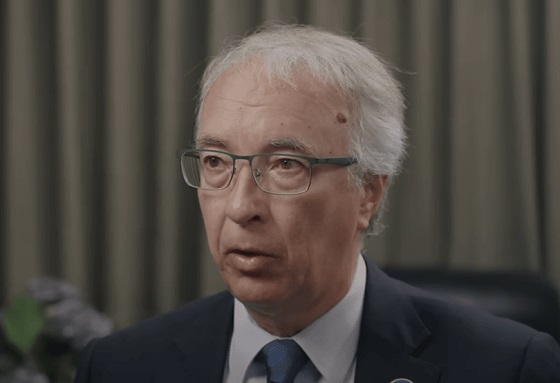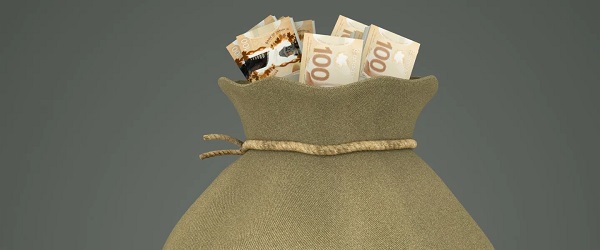National
BC Conservative leader calls for independent review after election ‘irregularities’

From LifeSiteNews
B.C. Conservative leader John Rustad says his party has uncovered ‘irregularities’ from the 2024 fall election which saw his party lose narrowly to David Eby’s New Democrats
The head of the provincial Conservative Party of British Columbia, John Rustad, said his party has unearthed voting “irregularities” in the 2024 provincial election and has demanded there be a full independent investigation.
“There’s been many people who have brought forward a tremendous amount of information to us about the election,” said Rustad while speaking to reporters last week.
“We have cases where an individual went to vote and was told somebody had already voted using their name.”
The 2024 election saw the far-left New Democrats under Premier David Eby narrowly beat out Rustad’s upstart Conservatives by the slimmest of margins. In one riding, Surrey-Guildford, the NDP won by just 22 votes after a mandated judicial recount. The results from the election took weeks to finalize after multiple recounts, as well as reports of ballots going uncounted.
Rustad claimed there were many discrepancies in the voting process, noting that there were no less than 21 irregular votes that had been registered to a senior home.
“In Surrey-Guildford we found a case of a double vote, we have found a case of there being at least 2,000 being cast of people whose place of residence that was on Elections BC is not where they currently live,” he said at his press conference.
“One of the more serious issues we have found is associated with a care facility of seniors where 21 ballots were cast and individuals in that facility have come forward with affidavits of what went on.”
The B.C. Conservative Party noted in an X post that it wants a “truly independent review of the provincial election following new evidence in Surrey-Guildford.”
“As Attorney General in 2019 and 2021, did David Eby lay the groundwork for the situation we face today – where we may never be sure if the voters truly elected a majority government? #bcpoli,” the party stated on X.
The Conservative Party has already filed an official complaint with Elections B.C. noting the “irregularities.”
Rustad called for changes to the Elections Act along with the independent review, noting how the party is recommending “that all photo ID issued should have a ‘C’ on it to ensure that the individuals are Canadian citizens.”
“The last recommendation is we actually think there are many people who have voted who may not be Canadian citizens, however, nobody wants to come forward because they are worried of what may happen. I think we must suspend the penalties for a 90-day period to allow people to come forward and explain what happened,” he noted.
In a statement to the media, Elections BC said that it takes “any potential violation of the Election Act seriously” and cannot comment further on the “allegations” made by Rustad, which it confirmed it has received.
As reported by LifeSiteNews, last November, Canadian investigative reporter Sam Cooper said his research has led him to conclude there was “significant” interference by groups linked to the Chinese Communist Party (CCP) in the recent provincial election of British Columbia.
As reported by LifeSiteNews, Rustad, just days before the election, condemned sexually explicit material in school libraries and indicated that he would remove them if elected.
Rustad has also come out in opposition to the use of often-sterilizing puberty blockers for gender-confused children and has condemned SOGI 123, a nationwide program pushing LGBT ideology in schools under the label of “inclusivity.”
National
Politically Connected Canadian Weed Sellers Push Back in B.C. Court, Seek Distance from Convicted Heroin Trafficker

Case sprawls from Pakistan’s chemical-precursor labs to Vancouver’s cannabis fields and law offices.
A high-stakes North American legal battle—centering on a politically connected Sikh-Canadian businessman at the collision point of Canada’s regulated cannabis sector and what U.S. authorities call a “multiyear, multinational attack” on American markets—and two estranged Vancouver brothers, one a convicted heroin trafficker and the other a cannabis cultivator alleging he was cut out of a Health Canada–licensed venture—has taken a turn in B.C. Supreme Court.
In one action, Emerald Health Sciences and related parties—including former British Columbia physician Avtar Singh Dhillon—have denied allegations by Krishansarup “Kris” Kallu, an estranged relative who says the company was structured to enrich insiders later charged by the U.S. government and to conceal key investors with deep narcotics ties that extend to chemical-precursor labs in Pakistan’s northern mountains—including his brother, Yadvinder “Yad” Kallu.
Dhillon—a British Columbia–educated physician and Sikh community leader now based in California—has long displayed deep political proximity in Canada; among the images circulating online is a photo of his niece with Prime Minister Justin Trudeau.
As Emerald Health stepped back from Dr. Dhillon—later drawn into an SEC case describing his role, along with West Vancouver lawyer Fred Sharp, in a one-billion-dollar stock-fraud network as a “multiyear, multinational attack” on American markets—his former Emerald partners filed a civil indemnity claim in September 2025 to create legal distance from Yadvinder Kallu.
In plain terms, the former executives deny the allegations against Emerald and argue that, if anything improper occurred—which they do not admit—legal responsibility must rest with Yadvinder Kallu alone.
Kris Kallu’s suit centers on the claim that his cousin Avtar Dhillon, Emerald Health Sciences, and Fred Sharp sit at the core of the network targeted by the United States government. He alleges that Sharp and Avtar Dhillon “are the true, direct or indirect controllers of Emerald Health Sciences,” and that “Sharp and [Avtar Dhillon] have been close business associates for many years.”
Kallu’s filings allege that individuals facing fraud charges in United States proceedings were among Emerald Health’s early investors.
They also state that Emerald Health Sciences had more than 200 shareholders on a confidential register maintained in Vancouver by the Canadian law firm Bennett Jones. The Bureau has previously reported on the firm’s ties to Liberal Party figures, and that former British Columbia premier Christy Clark has served as a senior adviser in the firm’s Vancouver office.
The Bureau’s reporting also included reviewing thousands of North American court filings and mapping financial networks tied to that legal share register—networks that span the Western Hemisphere and, through Yad Kallu’s historic narcotics activity, intersect with politically consequential narco-trafficking corridors in northern India and Pakistan.
Kris Kallu’s allegations are blunt: they suggest Emerald Health grew from a poisoned root—an effort to work around his brother Yad’s transnational trafficking history—while a polished corporate vehicle, including the Bennett Jones confidential share register, was built. He alleges that register ultimately benefited suspects tied to the Fred Sharp network.
In a revealing September 2021 email to another Dhillon family member—referring to news of U.S. government charges against the Fred Sharp network—Kallu wrote, according to his affidavit: “I find it very alarming as the key players that are being charged with fraud, money laundering, etc. are also invested in Emerald Health Sciences. I am curious how these investors were provided the opportunity to invest, given this is a private cannabis company and all investors were handpicked.”
According to Dhillon’s testimony in Boston as a cooperating witness, Sharp’s group would merge private companies run by hidden Vancouver investors into publicly traded companies, hire writers to fraudulently tout the companies in order to pump up prices, then sell shares to everyday investors—who were left holding deflated assets. Afterward, the conspirators laundered their proceeds. Key players got cash payments, part of a sprawling stock-fraud scheme allegedly tied to cannabis and biotech firms, shell entities, and a network of shadowy Western Hemisphere control groups.
During his testimony, Dhillon described one Vancouver exchange: “Once those shares were sold, I was in communication with (one of the Fred Sharp actors) about receiving some of the funds, and (the actor) offered and said, ‘Would you like to receive them in cash?’ And I said, ‘Certainly.’” Elaborating further, he said, “(The actor) personally delivered cash to me—usually at a restaurant.” When asked why he preferred cash, Dhillon was candid: “To hide it.”
Tracking further back in the B.C. Supreme Court record, Kris Kallu’s filings reach to Health Canada’s medical-marijuana program to explain how the business took root.
“In 2010, I completed an application form to obtain a designated growing licence,” his affidavit states, describing an effort to gain expertise ahead of regulatory changes. Because his brother Yad carried a trafficking conviction, Kris says the family devised a workaround: “As part of the application process, you had to pass a criminal background check. Yad had a criminal record for drug trafficking, so it was agreed that I would formally apply to become a designated grower for a patient who had a license for 99 plants.”
By 2013, he says, both Yad and their mother held sizeable medical-marijuana licences. He alleges that when Emerald Health was formed, he was told to route share-purchase funds through his mother’s bank account and later learned that some shares were allocated to David Nair, a co-defendant in Yad’s earlier criminal case. The criminal history cited by Kris Kallu relates to Yad Kallu’s involvement in a late-1990s joint DEA–RCMP probe ending with United States federal sentences after a California heroin deal.
B.C. Supreme Court findings describe a DEA operation that implicated Yad Kallu and Vancouver underworld figure Ranjit Singh Cheema, who was extradited to the United States for allegedly planning to import 200 kilograms of heroin and 4,000 kilograms of hashish from Pakistan. Cheema’s Canadian faction reportedly negotiated with Colombian cartels, bartering heroin for 800 kilograms of cocaine. Central to the probe was Mohammed Yusuf Khan, a former Pakistani military officer turned DEA asset, who facilitated the heroin transactions for Cheema’s network while working with RCMP liaisons.
The sting had deep U.S. intelligence roots.
According to a March 20, 1997 debrief by DEA Islamabad personnel—cited in Canadian court records—Mohammed Yusuf Khan told agents he had been approached by Mohamed Shafiq, a retired Pakistani army major and owner of Karam Associates, a chemical importer in Lahore. Khan said Shafiq “routinely diverts acetic anhydride to traffickers” operating in Pakistan’s Northwest Frontier Province—an essential precursor for heroin production—and that the pair were arranging a shipment of approximately 200 kilograms of Southwest Asia white heroin and up to four tons of hashish destined for North America.
Khan reported that Shafiq had already contacted a lab operator in northern Pakistan to stage the heroin for export. Initially, Shafiq “desired that the shipment be sent to Vancouver,” but Khan—who was also in contact with RCMP liaisons and aware of recent Canadian court decisions restricting controlled deliveries—refused to facilitate a Canadian entry. The plan shifted to Los Angeles, where Shafiq “had people in place who could take custody of the load and arrange its distribution.”
After U.S. visas were denied to both Shafiq and Khan, Khan offered to travel to Canada on his own—he held a multiple-entry Canadian visa—to meet “affiliated Canadians” and identify the U.S.-side recipients.
Meanwhile, in B.C. court filings, Emerald Health Sciences denies that Emerald was a conduit for undisclosed payments or a vehicle to hide criminal investors and asks the court to dismiss the Kris Kallu suit.
In a separate civil action dated September 11, 2025, five former Emerald Health Sciences figures closely linked to Avtar Dhillon seek protection from Yad Kallu.
Their claim cites the ongoing lawsuit brought by Kris Kallu and seeks indemnity from Yad, asserting that if any losses occurred, they were caused solely by Yad’s acts—not by the other Emerald parties.
But a narrow focus on Canadian court filings and B.C. hearings can distract from the underlying matter—and from the thematic link between Middle Eastern chemical labs and poppy fields and the fertile farmlands of Richmond, B.C., where narcotics have helped fuel a booming export market in Western Canada.
Industrial-scale grow-operation facilities linked to Emerald Health were the focus of Delta Police investigations in 2020, civil-forfeiture records show.
On October 28, 2020, police executed search warrants at multiple Richmond properties; they later described “Project Big Smoke” as the cannabis-production component and “Project Rolling Thunder” as a wider drug-trafficking probe launched in November 2020. Investigators concluded the output from these sites far exceeded the limits of Health Canada licences that Emerald promoted in 2018 through investor materials featuring Members of Parliament Carla Qualtrough and John Aldag, Richmond councillor Alexa Loo and Yad Kallu. Police estimated the facilities could produce roughly 18 million dollars’ worth of cannabis annually.
While cannabis was the primary focus, Delta Police’s “Rolling Thunder” raids—targeting a biker network linked to Emerald-branded marijuana—also uncovered hundreds of individually packaged doses of fentanyl, methamphetamine and crack cocaine, along with approximately one kilogram of powdered cocaine, according to filings in the B.C. Director of Civil Forfeiture’s ongoing case against Emerald-linked properties.
Meanwhile, in his 2023 appearance before a United States jury, Dhillon acknowledged that he agreed to testify against a number of his alleged conspirators, including Sharp, partly to mitigate his sentence. Dhillon testified that he personally earned between six and seven million dollars from these schemes, with proceeds funneled through various means—including offshore accounts in Singapore and Switzerland, cash deliveries, and payments routed through “designees.”
Dhillon’s testimony also illuminated Fred Sharp’s pivotal role in orchestrating these schemes, alleging Sharp established layers of offshore structures to hide beneficial ownership and exploited small-cap and emerging-market companies, including cannabis and biotech firms.
The Bureau is a reader-supported publication.
To receive new posts and support my work, consider becoming a free or paid subscriber.
Business
Quebecers want feds to focus on illegal gun smuggling not gun confiscation

The Canadian Taxpayers Federation released new Leger polling showing that half of Quebecers say the most effective way to reduce gun crime is to crack down on illegal gun smuggling from the United States, not a federal gun ban and confiscation.
“Law enforcement experts say the best way to make Canada safer is to stop illegal gun smuggling and Quebecers say exactly the same thing,” said Nicolas Gagnon, CTF Quebec Director. “It makes no sense to pour hundreds of millions into a confiscation that only takes guns from lawfully licensed gun owners.”
In 2020, the federal government launched its policy to confiscate thousands of so-called “assault-style” firearms from licensed gun owners. Ottawa recently announced a pilot project in Cape Breton to start taking firearms from individual owners.
The Leger poll asked Quebecers what they think is the most effective way to reduce gun crime. Results of the poll show:
- 51 per cent say introducing tougher measures to stop the illegal smuggling of guns into Canada from the United States
- 37 per cent say banning the sale and ownership of many different makes and models of guns along with a government buyback program
- Six per cent say neither of these options
- Seven per cent do not know
The results of the polls arrived as recorded remarks from Public Safety Minister Gary Anandasangaree made headlines in September.
In a leaked audio recording, the minister suggested the confiscation program is being pushed in part because of voters in Quebec, while also expressing doubt that local police services have the resources to enforce it.
Police organizations have long warned Ottawa’s confiscation program is misguided. The RCMP union says it “diverts extremely important personnel, resources, and funding away from addressing the more immediate and growing threat of criminal use of illegal firearms.”
The program was first estimated to cost $200 million. Just providing compensation for the banned guns, not including administrative costs, could cost up to $756 million, according to the Parliamentary Budget Officer.
Premiers of Alberta and Saskatchewan have both publicly said that they would not cooperate with Ottawa’s gun ban. Premier François Legault has stayed silent on this issue.
“Quebecers have been clear: the real problem is illegal gun smuggling, not law-abiding firearms owners,” said Gagnon. “The police have also made it clear the gun confiscation will waste money that could be used to stop criminals from committing gun crimes.
“Legault needs to stand up for Quebec taxpayers and refuse to help implement Ottawa’s costly and ineffective confiscation scheme. The federal government needs to drop this plan and focus its resources on intercepting illegal guns at the border: that’s how you actually make communities safer.”
-

 City of Red Deer1 day ago
City of Red Deer1 day agoPlan Ahead: Voting May Take a Little Longer This Election Day
-

 Crime21 hours ago
Crime21 hours agoFrance stunned after thieves loot Louvre of Napoleon’s crown jewels
-

 Uncategorized23 hours ago
Uncategorized23 hours agoNew report warns WHO health rules erode Canada’s democracy and Charter rights
-

 Business1 day ago
Business1 day agoUS government buys stakes in two Canadian mining companies
-

 Energy23 hours ago
Energy23 hours agoMinus Forty and the Myth of Easy Energy
-

 Frontier Centre for Public Policy1 day ago
Frontier Centre for Public Policy1 day agoOttawa Should Think Twice Before Taxing Churches
-

 Fraser Institute1 day ago
Fraser Institute1 day agoMétis will now get piece of ever-expanding payout pie
-

 Alberta1 day ago
Alberta1 day agoBusting five myths about the Alberta oil sands






